- Home Page
- Company Profile
-
Our Products
- Fiberglass and Insulation Sleeves
- Fire Resistant Sleeve
- Insulation Sleeves
- Polyester Expandable Braided Sleeves
- SRBP Tubes
- Polyurethane Fiberglass Sleeves 1.5 kv
- Acrylic Fiberglass Sleeving
- Varnished Fiberglass Sleeve F Class
- Fire Sleeves
- Polyurethane Fiberglass Sleeve
- PVC Coated Fiberglass Sleeve
- Silicone Coated Fiberglass Sleeve
- Polyurethane Coated Fiberglass Sleeves
- Fiberglass Sleeve ( China Sleeve )
- Fiberglass Sleeving B Class
- Nomex Paper and Electrical Insulation Papers
- Electrical Insulating Paper
- Eurotherm Laminated Nomex Paper NPN
- Pure Aramid Paper
- Laminated Fleece Paper
- Laminated Aramid Paper
- Saturated Fleece Paper
- DuPont Nomex Paper
- Saturated Fleece Paper
- Insulating Kraft Paper
- Insulation Pressboard
- Laminated Nomex
- Electrical Insulation Papers and Laminates
- Pure Aramid (Nomex) Paper
- Laminated Fleece
- Black Kraft Paper
- Amotforse Brown Kraft Paper
- Diamond dotted Paper
- Fiberglass and Insulated Cables
- Glass Epoxy Sheets and Wedges
- Varnishes and Thinners
- Electrical Insulation Tapes
- Electrical Insulation Sheets and Fabrics
- PTFE Wire
- Silicon Cable
- Insulation Film
- Fiberglass and Insulation Sleeves
- Certificates
- Contact Us
Fiberglass Lead Wire
10.0 INR/Meter
Product Details:
- Connector Type Terminals, Ferrules, or Lugs (on request)
- Cable Length 100m Rolls (standard) or custom length Meter (m)
- Conductor Type Stranded Copper (Tinned, Nickel, or Silver Plated)
- No Of Core Terminals, Ferrules, or Lugs (on request)
- Temperature Based on cross-section (0.5 mm 20 mm) Celsius (oC)
- Product Type High-Temperature Electrical Wire
- Power Rating Industrial grade as per design requirement
- Click to view more
X
Fiberglass Lead Wire Price and Quantity
- 10.0 INR/Meter
- 1 Meter
Fiberglass Lead Wire Specification
- Fiberglass Braid (impregnated with heat-resistant varnish)
- Tinned Copper / Nickel-Plated Copper / Silver-Plated Copper
- Transformers, Motors, Ovens, Heaters, Household Appliances, Automotive Wiring, Lighting
- Standard 100m Rolls / Custom Lengths Available Meter (m)
- White, Red, Black, Yellow (custom colors available)
- High dielectric strength, thermal insulation & flame resistance
- 60 C to +200 C (continuous operation) / up to 250 C short exposure Celsius (oC)
- Stranded Copper (Tinned, Nickel, or Silver Plated)
- Motors, Transformers, Ovens, Heating Equipment, Appliances, Lighting, Automotive
- 0.25 mm 95 mm (custom sizes available)
- Suitable for 50/60Hz and high-frequency use Megahertz (MHZ)
- High conductivity & excellent insulation resistance Ampere (amp)
- Terminals, Ferrules, or Lugs (on request)
- Based on cross-section (0.5 mm 20 mm) Celsius (oC)
- Varies with conductor size (5A 200A) Ampere (amp)
- N/A (industrial use)
- Tinned Copper / Nickel-Plated Copper / Silver-Plated Copper
- Works for power & control wiring (50Hz high frequency) Megahertz (MHZ)
- Transformers, Motors, Ovens, Heaters, Household Appliances, Automotive Wiring, Lighting Ampere (A)
- Fiberglass Braid (impregnated with heat-resistant varnish)
- Up to 2000V
- Single Core Flexible Lead Wire
- Excellent thermal stability High dielectric strength Resistant to flame, oil & chemicals Flexible and durable Long service life under electrical stress
- Based on cross-section (0.5 mm 20 mm) Millimeter (mm)
- High-Temperature Electrical Wire
- Transformers, Motors, Ovens, Heaters, Household Appliances, Automotive Wiring, Lighting
- 1 Year Manufacturer Warranty
- Single & Three Phase Systems
- Industrial grade as per design requirement
- Terminals, Ferrules, or Lugs (on request)
- 100m Rolls (standard) or custom length Meter (m)
Fiberglass Lead Wire Trade Information
- 1000 Meter Per Year
- 3 Days
Product Description
Fiberglass Lead Insulation Wire has excellent thermal stability and high voltage properties combined with small size due to low wall thickness, superb thermal resistance and low production costs makes it the best insulation option in applications where high thermal insulation is required at mains voltages. These cables are closely braided from E grade low alkali type fibreglass yarn, impregnated with synthethic varnishes as per temperature and insulation class requirement.
Fiberglass Lead Wire Specifications:
1. Size: 0.25 sqmm to 150 sqmm
2. Material: Fiberglass
3. Number Of Core: Single Core
Advantages of Fiberglass Lead Wire:
1. High-Temperature Resistance: Fiberglass lead wire can withstand extremely high temperatures without melting or degrading, making it suitable for use in applications such as ovens, furnaces, and heating elements. It remains stable and maintains its electrical insulation properties even at elevated temperatures.
2. Fire Resistance: Fiberglass insulation is inherently fire-resistant, providing an added level of safety in applications where fire hazards are a concern. It does not support combustion and can help prevent the spread of fires.
3. Excellent Electrical Insulation: The fiberglass insulation material provides excellent electrical insulation properties, making it suitable for use in electrical and electronic equipment. It helps prevent electrical leakage and ensures reliable performance.
4. Chemical Resistance: Fiberglass lead wire is resistant to a wide range of chemicals, acids, and solvents, making it ideal for use in corrosive environments. It can maintain its integrity and electrical properties when exposed to various chemicals.
5. Moisture Resistance: It is resistant to moisture and humidity, which is important for applications in outdoor or damp environments. This resistance helps prevent electrical shorts and degradation of the wire.
6. UV Resistance: Fiberglass lead wire can withstand exposure to ultraviolet (UV) radiation without deteriorating, making it suitable for outdoor applications where sunlight is a factor.
7. Durability: It has high mechanical strength and durability, which makes it suitable for use in applications where the wire may experience mechanical stress or abrasion.
8. Longevity: Fiberglass lead wire has a long service life due to its resistance to heat, chemicals, and environmental factors. This can result in reduced maintenance and replacement costs over time.
9. Biocompatibility: In some medical applications, fiberglass lead wire can be chosen for its biocompatibility, making it suitable for use in medical devices and equipment.
10. Lightweight: Fiberglass lead wire is lightweight, which can be advantageous in applications where weight is a consideration, such as aerospace and automotive applications.
11. Wide Range of Temperature Ratings: It is available in various temperature ratings to suit specific application requirements. This versatility allows for customization to meet different needs.
12. Low Thermal Expansion: Fiberglass lead wire has a low coefficient of thermal expansion, which means it is less likely to expand or contract significantly with temperature changes, helping to maintain electrical connections.
13. Resistance to Mechanical Abuse: It can withstand physical abuse, making it suitable for use in environments where the wire may be subject to bending, twisting, or other mechanical stresses.
FAQs:
1. What is Fiberglass Lead Wire?
Ans: This wire is a type of electrical wire that features a fiberglass insulation coating. It is commonly used in various applications where electrical
insulation and resistance to high temperatures are required.
2. What are the key properties of Fiberglass Lead Wire?
Ans: This wire is known for its excellent electrical insulation properties, resistance to heat and flames, and durability. It can withstand high temperatures without melting or degrading.
3. What are the typical applications for Fiberglass Lead Wire?
Ans: This wire is used in a wide range of applications, including wiring in industrial equipment, appliances, lighting fixtures, heating elements, and in situations where exposure to high temperatures or harsh environments is expected.
4. Is Fiberglass Lead Wire flame-resistant?
Ans: Yes, this wire is known for its flame resistance. It does not support combustion and can be used in applications where exposure to flames or high temperatures is a concern.
Unmatched Thermal & Electrical Performance
Engineered to excel under electrical and thermal stress, Fiberglass Lead Wire offers superior dielectric properties and consistently high conductivity. The fiberglass insulation ensures stable performance in environments exposed to extreme temperatures, flames, oils, or chemicals. With voltage ratings up to 1000V and current capacity aligned to design needs, this wire guarantees both safety and efficiency in critical applications.
Versatility Across Industrial Applications
From powering motors and transformers to enabling efficient connections in ovens, heaters, lighting systems, and even automotive wiring, Fiberglass Lead Wire is the top choice for robust electrical solutions. Its customizable sizes, color options, and optional connectors (terminals, ferrules, lugs) make it adaptable for manufacturers, exporters, and distributors seeking reliable, long-lasting performance.
Customizable Solutions and Easy Installation
Fiberglass Lead Wire is offered in standard 100-meter rolls or can be manufactured to specific lengths and diameters to align with project requirements. Available in various conductor platings and colors, this cable remains flexible for easy handling and installation, with single or double-braided fiberglass insulation ensuring maximum protection and lifespan.
FAQs of Fiberglass Lead Wire:
Q: How does Fiberglass Lead Wire withstand high temperatures during operation?
A: Fiberglass Lead Wire is insulated with a fiberglass braid that is impregnated with heat-resistant varnish, allowing for continuous operation from -60C up to 200C, and even short bursts at 250C. This makes it suitable for high-heat applications like heaters, ovens, and industrial machinery.Q: What types of equipment and environments is Fiberglass Lead Wire commonly used in?
A: This lead wire is commonly used in transformers, motors, ovens, heaters, lighting fixtures, household appliances, and automotive wiring. Its robust insulation and flexibility make it ideal for both industrial and domestic environments exposed to temperature extremes or electrical stress.Q: When should I consider using tinned, nickel-plated, or silver-plated copper conductors?
A: The choice of conductor plating depends on environmental conditions. Tinned copper is excellent for general corrosion resistance, nickel-plated offers superior performance at very high temperatures, and silver-plated copper is used where maximum electrical conductivity is required, often in high-frequency or critical control systems.Q: What are the main benefits of choosing Fiberglass Lead Wire over other types of electrical cables?
A: Fiberglass Lead Wire stands out due to its high dielectric strength, exceptional thermal stability, resistance to flame, oil, and chemicals, and remarkable flexibility and longevity. Its adaptability to extreme environmental conditions ensures reliable performance and long service life.Q: How is Fiberglass Lead Wire installed and terminated for industrial use?
A: Wire can be supplied with a variety of connectors such as terminals, ferrules, or lugs upon request, making installation straightforward. Its single-core flexible design and customizable length and diameter options simplify integration into existing electrical setups or new installations.Q: Where can I source Fiberglass Lead Wire and are custom specifications available?
A: You can source this product from leading manufacturers, exporters, suppliers, and distributors across India. Custom sizes, colors, and connector types are readily available to meet specific project requirements or installation constraints.Tell us about your requirement

Price:
Quantity
Select Unit
- 50
- 100
- 200
- 250
- 500
- 1000+
Additional detail
Mobile number
Email

 Send Email
Send Email 
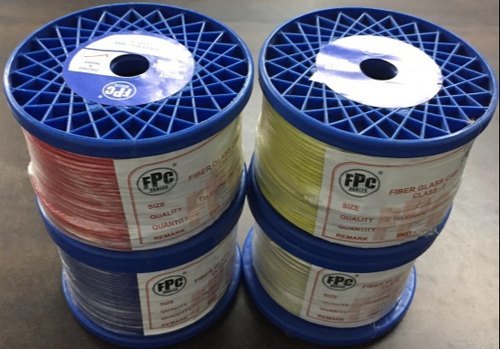
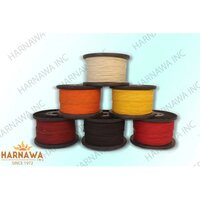
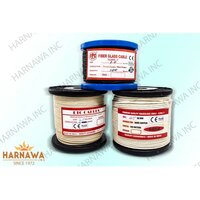
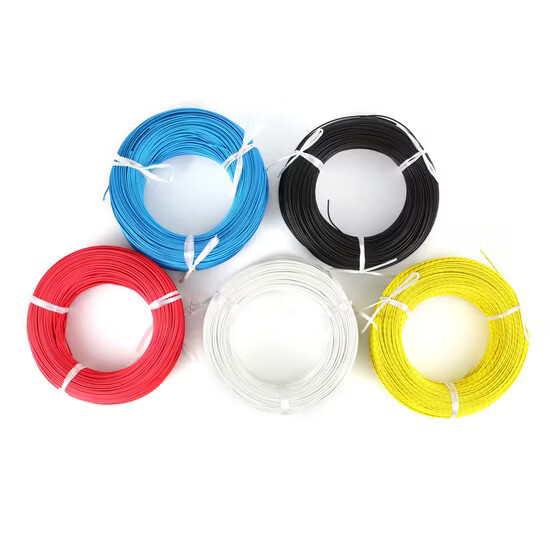
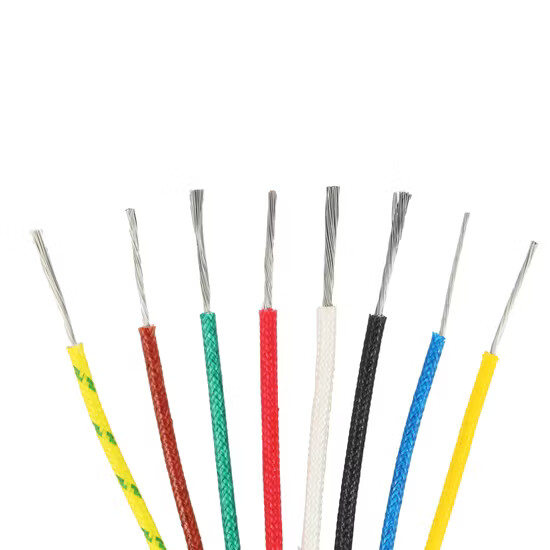







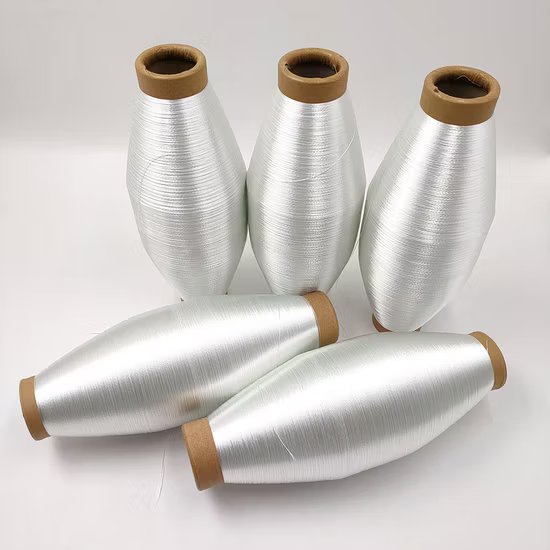
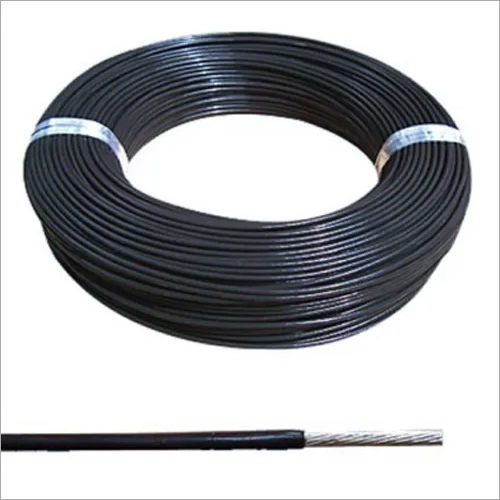
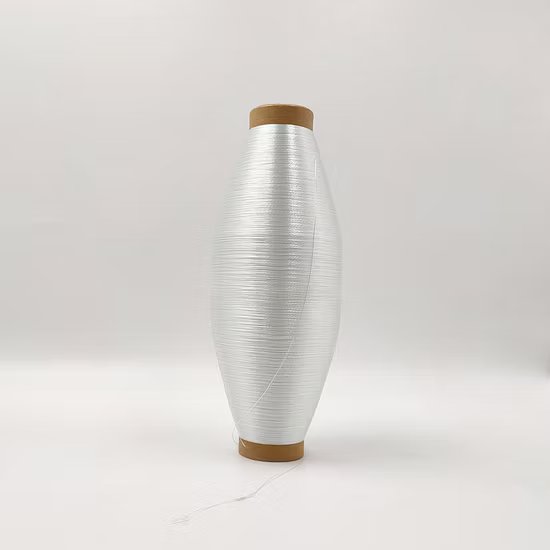

 Send Inquiry
Send Inquiry Send SMS
Send SMS
 English
English Spanish
Spanish French
French German
German Italian
Italian Chinese (Simplified)
Chinese (Simplified) Japanese
Japanese Korean
Korean Arabic
Arabic Portuguese
Portuguese